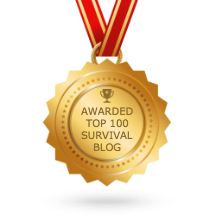 There is nothing worse then trying to find something in a pantry and not being able to find what you need or because the Pantry is so disorganized you don't even know what you do have. You have got to have a plan and an ongoing shopping list so that your food storage is well-stocked and organized. In a pinch you will have what you need to make your family a great meal.
There is nothing worse then trying to find something in a pantry and not being able to find what you need or because the Pantry is so disorganized you don't even know what you do have. You have got to have a plan and an ongoing shopping list so that your food storage is well-stocked and organized. In a pinch you will have what you need to make your family a great meal. Know what you use the most of and what your family likes. Don't fill your pantry with foods that you do not use often. That is just a waste of space and money. For example: If your family doesn't like rice, then don't rush out and get a 50 pound bag of it.
Only buy in bulk the stuff that you use the most often. You do not want a lot of bulk items in your pantry that will not be used and end up going bad.
Stock up on canned items as often as you can. Canned tomatoes, beans, veggies, etc are a great thing to have a lot of on hand. They can spruce up a soup or any meal in a pinch. Especially when you do not have fresh items on hand. In an emergency you will have canned items on hand to be able to make great food.
Sometimes unwrapping items will make them fit better in your pantry and make room for more of that item. I have to do this a lot since I have such a small place to put food and paper items.
Keep your Pantry cool. Don't store long term food storage next to any appliance that might give off heat. This can greatly reduce the shelf life of your food storage.
Manage your pantry by keeping an ongoing inventory. I have a notebook right with my stockpile where I keep track of what is used and what is added. That way I know exactly what is needed. Also this helps remind me to rotate the food storage! The new goes into the back and older in the front so that it gets used first. No risk of wasting food with this set up. Saves us money and keeps up stocked up. Right now I am pretty confident that we have about 6 months worth of food storage. Slowly building up to a year. Now that I have a bit of extra money each week it will be built on a bit quicker.
The Prepper's Pocket Guide: 101 Easy Things You Can Do to Ready Your Home for a Disaster




0 comments:
Post a Comment